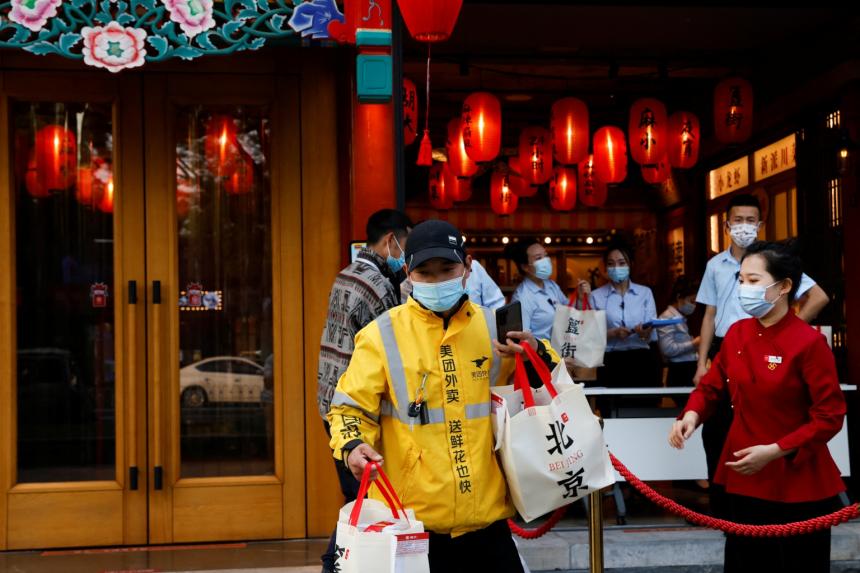
BEIJING (BLOOMBERG) – China’s capital is deploying an increasingly hardcore playbook to contain its nascent Covid-19 outbreak, from repeat testing of most residents to barring access to public places without a negative result as it seeks to avoid the chaos seen in Shanghai.
Beijing halted dining-in at restaurants for the duration of the May Day holiday, which runs through Wednesday (May 4), made entry into places like parks and monuments dependent on a negative Covid test and has shuttered gyms.
Authorities have also locked down apartment blocks – forcing some residents to stay in their units – and ordered another three rounds of mass testing to rein in an outbreak that added 62 new cases Monday, according to state-run CCTV, up from 41 on Sunday.
In Shanghai, new cases fell to 5,669 from 7,333.
The financial hub’s experience is a cautionary tale for Beijing officials seeking to maintain China’s Covid Zero strategy, an approach that’s leaving the country increasingly isolated as the rest of the world opens up.
Beijing has never been locked down at any time in the pandemic, and authorities are aware of the message it would send if the city was forced to curtail peoples’ movements.
To avoid the fate of Shanghai – which has been locked down for more than a month now – officials are deploying tougher measures earlier.
Residents of Beijing’s main districts have already undergone multiple rounds of mass testing, aimed at rooting out unknown chains of transmission and cases before they become symptomatic.
A makeshift hospital that will be used to isolate mild Covid-19 cases was reopened on Sunday, the state-run Global Times newspaper reported.
As part of its strategy pioneered during its first Covid-19 wave in Wuhan, China quarantines all infected people and their close contacts to quell transmission.
While successful early on in the pandemic, it’s proven increasingly difficult to execute with bigger and more consistent virus waves driven by more contagious variants like Omicron.

